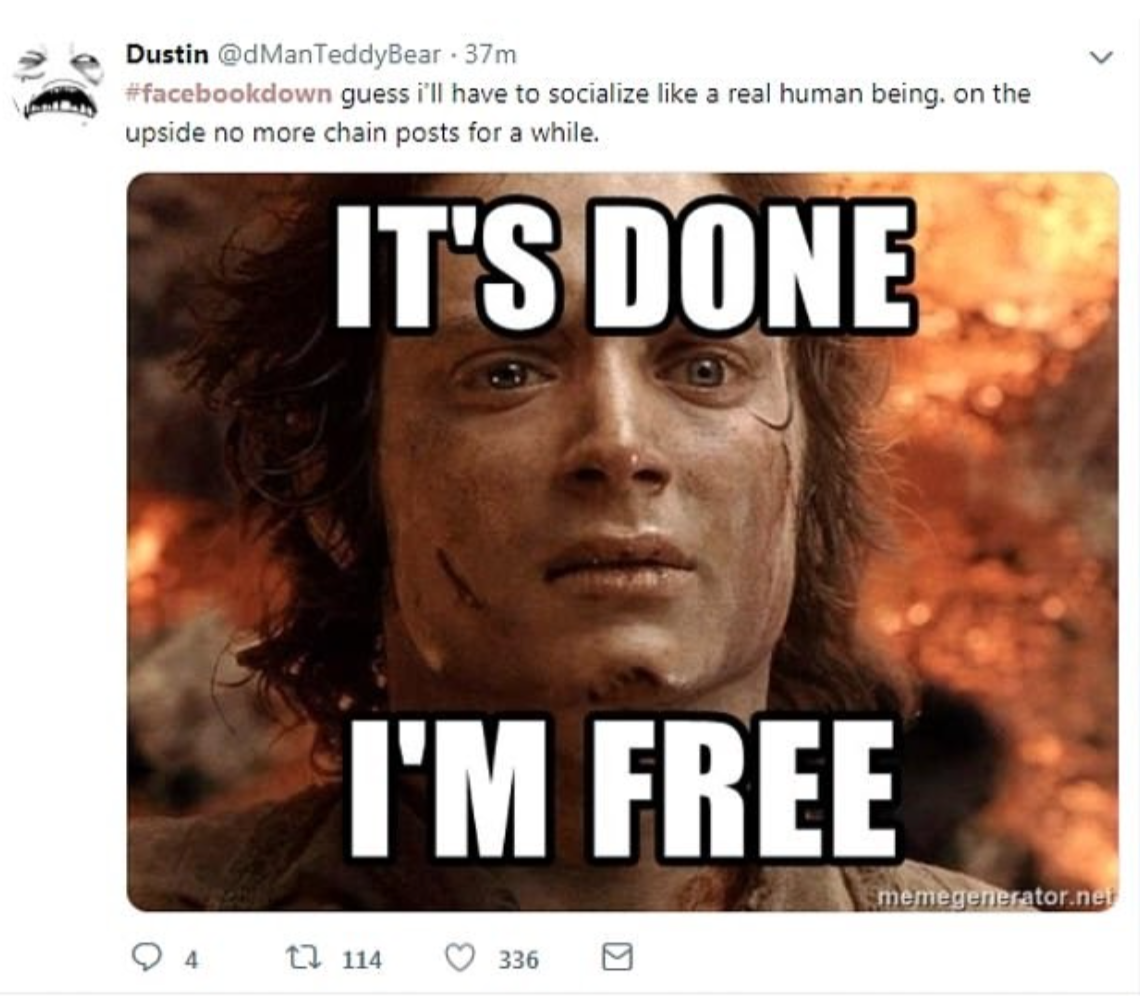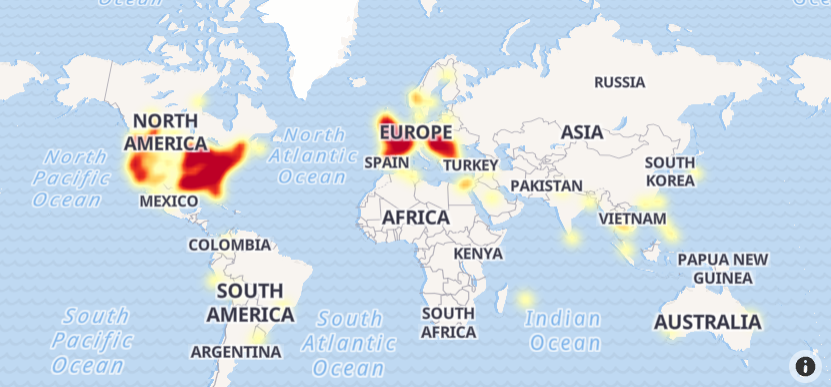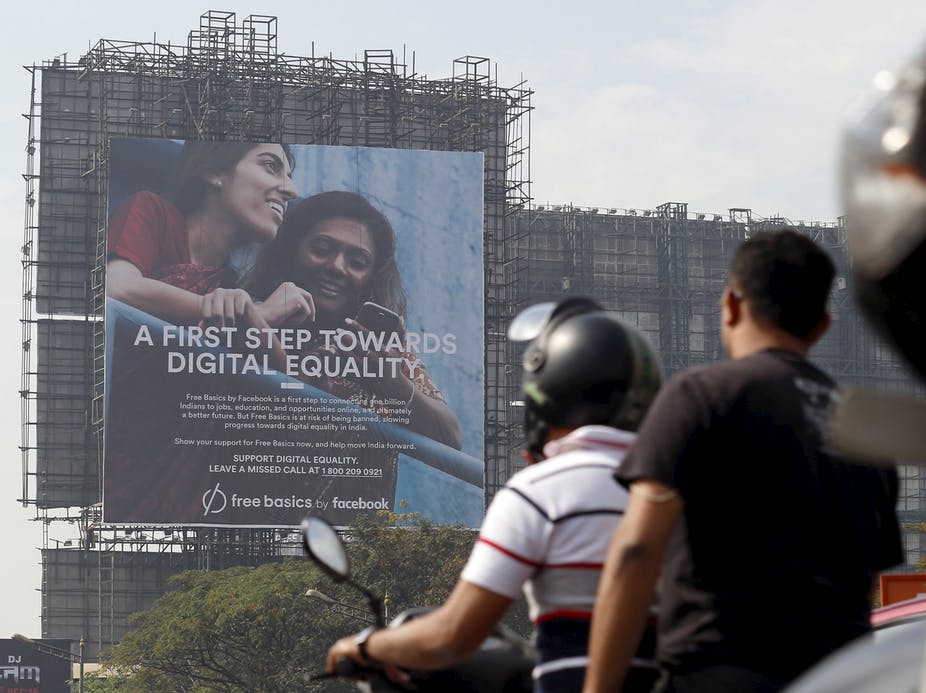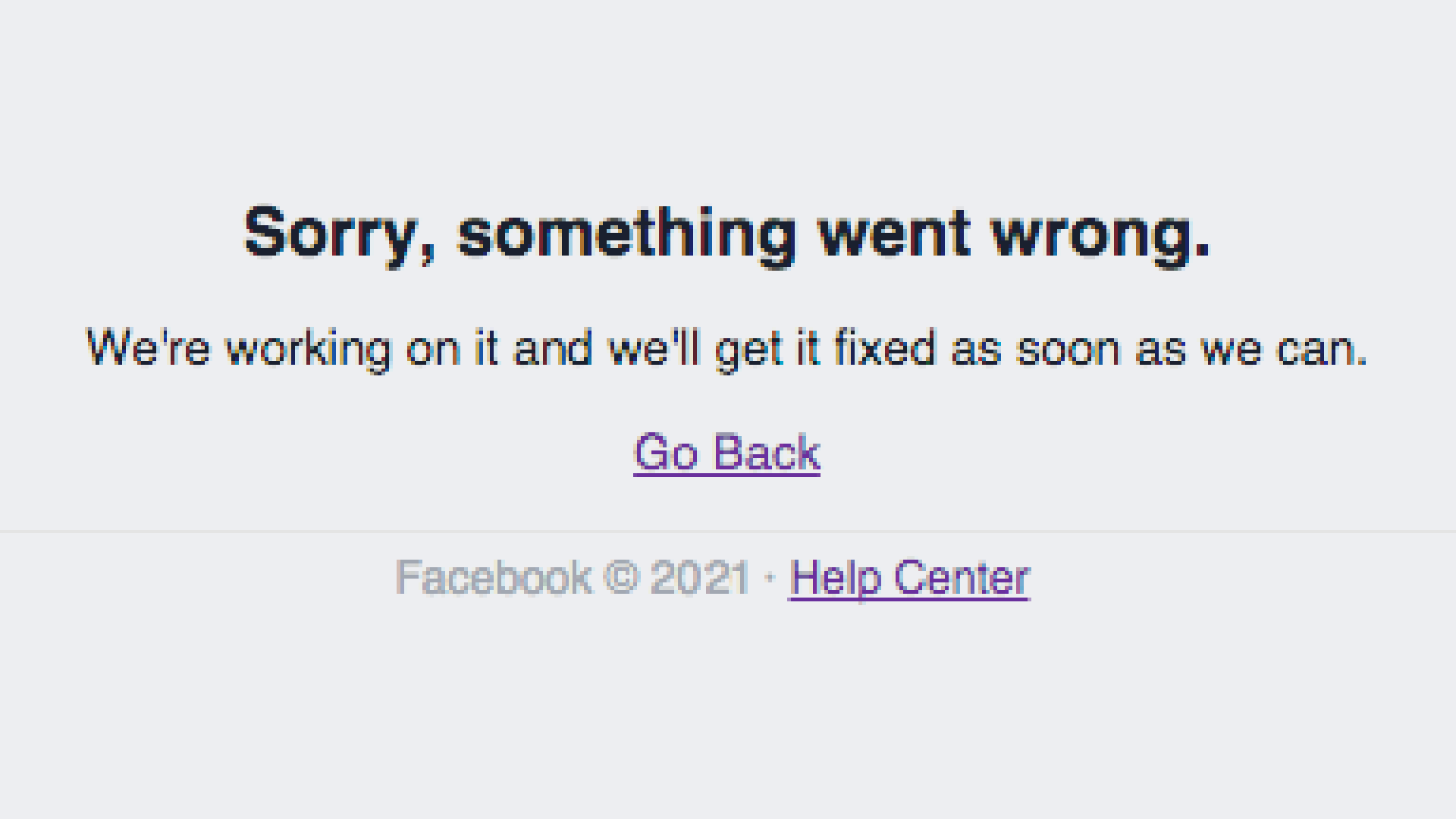Where were you on the 4th of October 2021? On that date, an internal issue caused the blackout of all the services of Meta, at the time still called Facebook. It feels like a faraway glitch in our ever-connected lives, those 6 hours of “sorry, something went wrong”. But 6 hours is an outstanding amount of time for our digital selves, during which approximately 3.50 billion people were forcefully cut off from all connections enabled by Meta.
Some of us experienced it as an opportunity to take time off our mobiles, praising the event like an unexpected, yet needed “digital detox”. Many had to reinvent their leisure time all of a sudden. Some people found themselves reading a book, cooking, or trying other ways of connecting with their fellow humans. What did you do? Seemingly, the rest of the internet started mocking the company, judging by the many memes created during, or soon after the event.

“I survived the Facebook outage” immediately became a popular phrase used as soon as the Meta services reappeared online - you can even flaunt your endurance with a specifically designed t-shirt, with the date and all.
Digital detox or digital divide?
The narrative of the survival quickly spread out as a joke, but was also appropriated more seriously by most of the (mainstream) news outlets. Headlines did not fail to instill the urgency of the outage in their articles and meticulously mapped the phenomenon throughout its various phases. And though it almost felt as if some kind of a natural disaster had happened, this of course was not the case. The outage was due entirely to a technological default, made possible by human lapse. As Meta services are globally used, the consequences of the technical error increased worldwide, impacting people in substantial, different ways. And since Meta is much more than a social media provider, people’s routines were destabilized not only socially but also on other levels.

Much of the global population has been turning to Meta services to operate their businesses, using the social platforms as a virtual where to display and sell their products. E-commerce provides an easy and affordable way to get into business, especially for small creators and merchants. For them, the outage meant being completely unable to sell, resulting in the forced, 6-hours long closure of their businesses. The most impacted, however, have been the users of Free Basics. This is a service released in 2015 by Meta to grant people internet access in under-connected areas of the world. The program aims to grant access to communication tools, education resources, and health information through data-light websites and online services, making it possible for people to navigate online even when their internet supply is very limited. But as soon as Meta shut down, their doors to the internet locked.

Framing the Facebook outage as a Next Nature disaster might help us to rethink how we respond to events like these. Whereas hurricanes storm geographical areas because of complex relations between pressure and wind’s strength, this technological disaster is dependent on specific conditions like the distribution of human power and responsibilities. Events such as the Facebook outage of 2021, ask us to check our technology privilege and become more aware of the ways technology introduces new types of vulnerabilities to some parts of the population. A real next nature disaster asks for something more than: "sorry, something went wrong".

Share your thoughts and join the technology debate!
Be the first to comment